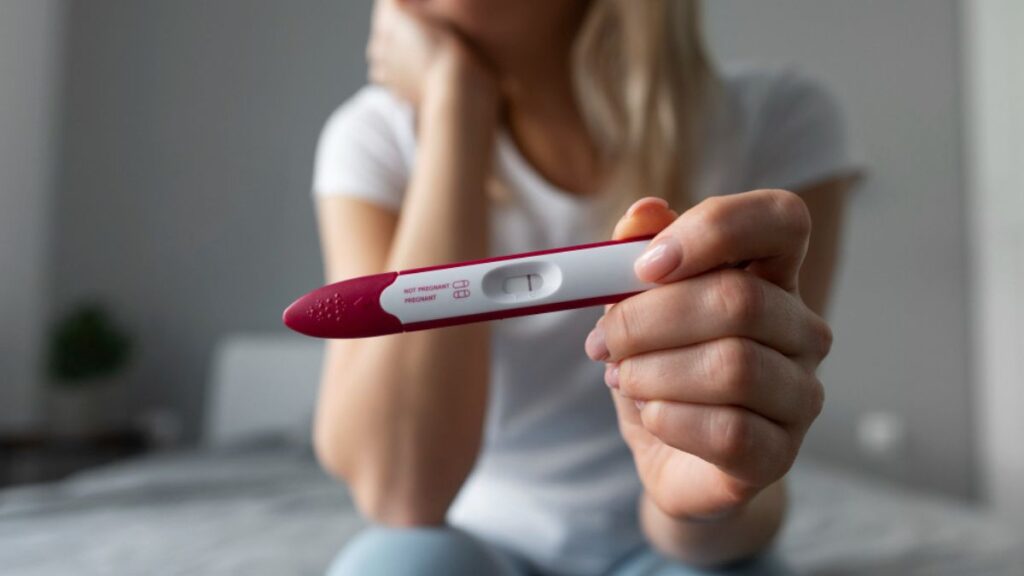Starting a family can be an exciting and emotional journey. But when conception doesn’t happen as expected, it’s natural to feel frustrated, anxious, or even confused. Knowing what causes infertility in women and recognizing the early signs can empower you to seek timely support and medical guidance.
This guide outlines when it might be time to speak with a fertility specialist and explores the underlying reasons why women may struggle to conceive.
When Should You Consider Speaking to a Doctor?
Infertility is generally defined as the inability to get pregnant after 12 months of regular, unprotected intercourse (or six months if you’re over age 35). However, you don’t have to wait a full year if you notice certain signs or have known risk factors. Here are key indicators it might be time to consult with a provider:
- You’re under 35 and have been trying for over a year
- You’re over 35 and have been trying for six months or more
- You have irregular or absent periods
- You’ve experienced multiple miscarriages
- You have a history of pelvic inflammatory disease or endometriosis
- Your cycles are extremely short (less than 21 days) or very long (over 35 days)
- You or your partner has a known reproductive health condition
Early intervention can help identify possible barriers and provide a clear path forward.
Additionally, those with certain underlying health conditions—like diabetes, autoimmune disorders, or thyroid dysfunction—may want to proactively discuss fertility with their healthcare provider. Being proactive is especially helpful for women who plan to delay pregnancy for career, personal, or medical reasons.
What Causes Infertility in Women?
There are many possible reasons why a woman may struggle to conceive. The causes are often complex and can involve hormonal, anatomical, or lifestyle-related factors. Some of the most underlying reasons why women may struggle to conceive include:
Ovulation Disorders
Conditions like polycystic ovary syndrome (PCOS), thyroid imbalances, or elevated prolactin levels can prevent the ovaries from releasing eggs regularly—one of the leading causes of infertility. According to the Office on Women’s Health, ovulation problems account for about one-quarter of all infertility cases in women.
Fallopian Tube Damage or Blockage
Infections, previous surgeries, or ectopic pregnancies can cause scarring or blockage in the fallopian tubes, making it difficult for sperm to reach the egg. Sexually transmitted infections like chlamydia and gonorrhea are common culprits of tubal damage.
Endometriosis
This condition causes tissue similar to the uterine lining to grow outside the uterus, potentially interfering with egg release or implantation. It can also cause chronic pelvic pain and heavy periods, both of which warrant evaluation.
Uterine or Cervical Issues
Fibroids, polyps, or structural abnormalities can affect implantation or the ability of sperm to enter the uterus. These issues are often identified through ultrasound or hysteroscopy.
Age-Related Fertility Decline
As women age, both the quantity and quality of eggs diminish. Fertility begins to decline more significantly in the early 30s and more rapidly after 35. By age 40, chances of natural conception drop considerably.
Lifestyle and Environmental Factors
Smoking, excessive alcohol use, extreme stress, obesity, or being underweight can also impact fertility. Exposure to certain environmental toxins or endocrine-disrupting chemicals may also play a role. The American College of Obstetricians and Gynecologists (ACOG) recommends lifestyle modifications as part of early fertility evaluations.
What to Expect During a Fertility Evaluation
If you decide to consult a fertility specialist, the process usually starts with a full health history, physical exam, and lab work to assess hormone levels and ovulation. Imaging tests such as ultrasounds or hysterosalpingography (HSG) may be used to check your reproductive anatomy.
Depending on the findings, your doctor might recommend:
- Lifestyle changes (diet, exercise, stress reduction)
- Medications to stimulate ovulation (e.g., Clomid or Letrozole)
- Surgery to correct structural issues
- Intrauterine insemination (IUI) or in vitro fertilization (IVF)
Some evaluations also include testing your partner’s fertility through semen analysis. It’s important to approach fertility as a shared journey.
Emotional and Mental Health Considerations
Struggling with infertility can be emotionally taxing. It can bring feelings of grief, guilt, or isolation. Seeking help from a counselor who specializes in reproductive health or joining a support group can offer comfort and validation. Mental well-being plays a critical role not only in the fertility journey but in overall health.
According to the National Institutes of Health (NIH), stress and mental health conditions can potentially influence reproductive hormones and cycle regularity, although they are rarely sole causes of infertility.
You’re Not Alone
If you’re concerned about infertility, it’s important to remember that you’re not alone—and there are compassionate, effective resources available. According to the Centers for Disease Control and Prevention (CDC), about 1 in 5 married women aged 15–49 with no prior births experience infertility.
Support groups, fertility counselors, and online communities can also provide emotional support during what can be an overwhelming time.
Final Thoughts
Understanding what causes Female Fertility and recognizing early signs is a crucial step toward protecting and advocating for your reproductive health. If you’ve been trying to conceive without success or have noticed any concerning symptoms, don’t hesitate to reach out.
By uncovering the underlying reasons why women may struggle to conceive and seeking expert care, you can take proactive steps toward growing your family—on your timeline and with the support you deserve.







